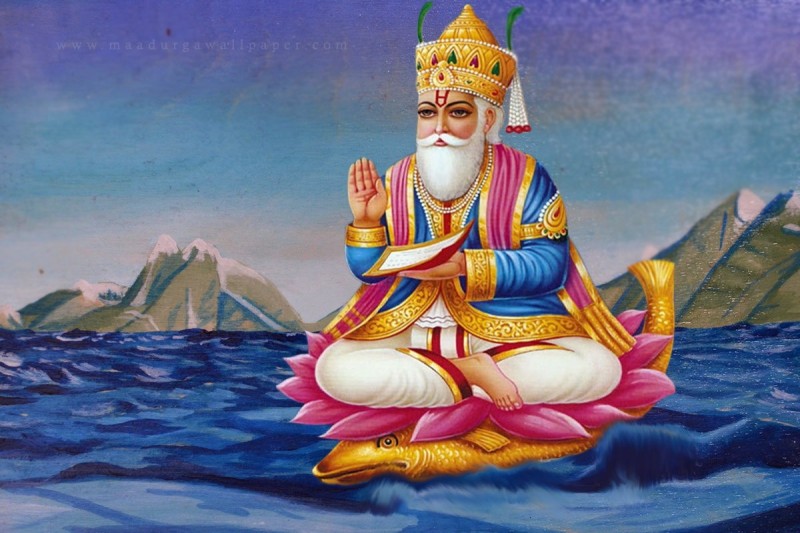
Jhulelal, also known as Udero Lal, is a beloved and revered deity among the Sindhi community, especially Sindhi Hindus. He is considered the patron saint and the divine savior of the Sindhi people. The story of Jhulelal is one of faith, unity, and protection, and it holds a special place in the hearts of millions of Sindhis around the world. Jhulelal, the divine savior of Sindhis, holds a special place in the hearts of his devotees. His legend stands as a testament to the power of faith and the significance of preserving cultural identity in the face of challenges. As Sindhis around the world come together to celebrate Cheti Chand and honor Jhulelal's teachings, they continue to draw strength and inspiration from the eternal message of love, unity, and hope he represents.
The story of Jhulelal is set in the historical context of the Sindh region during the 10th century. It is said that the people of Sindh were facing persecution and religious oppression under the rule of a tyrannical king who wanted to force them to convert to Islam. In the face of such adversity, the Sindhis, both Hindus and Muslims, sought divine intervention and guidance to protect their faith and preserve their culture. According to the legend, the childless queen of the king had a dream in which she was instructed to immerse a cradle into the Indus River. When she followed the instructions, a divine child miraculously appeared in the cradle. This child was named Udero Lal, later known as Jhulelal. Jhulelal was believed to be an incarnation of Lord Varuna, the Vedic god of water and the sea. He appeared as a symbol of hope and protection for the Sindhi people, especially those facing religious persecution. Jhulelal's arrival brought unity among Hindus and Muslims, as both communities saw him as their spiritual guide and protector.
The Sindhi New Year, known as Cheti Chand, is an auspicious occasion celebrated with great fervor and devotion to honor Jhulelal's birthday. It usually falls in March or April, marking the beginning of the Hindu lunar calendar. The festival is a vibrant affair, with devotees singing bhajans (devotional songs) and offering prayers to Jhulelal. Colorful processions are taken out, and the immersion of the Jhulelal idol in the river marks the conclusion of the festivities. The teachings of Jhulelal emphasize the values of love, tolerance, and unity. He is regarded as a unifying force, bridging the gap between different religious communities and fostering a spirit of brotherhood. Jhulelal's message encourages people to rise above religious and cultural differences and embrace a shared humanity. The worship of Jhulelal has transcended the geographical boundaries of the Sindh region. Sindhi communities worldwide celebrate Cheti Chand and continue to revere Jhulelal as their guiding deity. Through his legend and teachings, Jhulelal has become an embodiment of resilience and hope for Sindhis, reminding them of the importance of faith, compassion, and unity in the face of adversity.
Also read -Sindhi Religion: A Journey of Cultural and Spiritual Traditions
Shiv Chalisa: Devotional Verses Honoring Lord Shiva
Hanuman Ashtak: A Reverent Hymn Celebrating the Mighty Hanuman